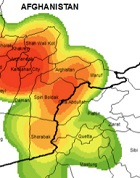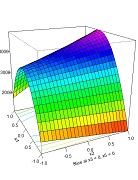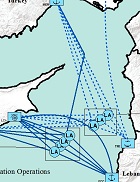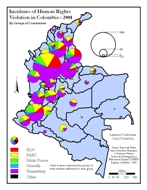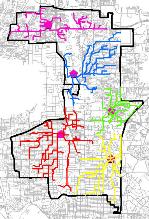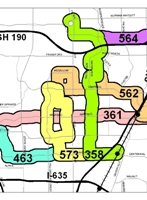|
The Center for Location Science at George Mason University is dedicated to interdisciplinary research that addresses applied and theoretical problems with a fundamental focus on spatial relationships and efficiently solving problems of a spatial or geographic nature. The Center supports a broad range of scientific approaches and technologies and serves a wide community of scholars at George Mason University, across Virginia, and beyond. The Center provides research, education, training, and outreach opportunities to students, faculty, and our community of stakeholders.
Goals and Objectives
- The Center promotes geographic information science (GIScience), location science, and spatial analysis across a wide range of disciplines. In particular, The Center develops interdisciplinary collaborations with stakeholders in:
- Location-aware operations research and management science
- behavioral science and psychology
- criminology and forensic science
- health sciences
- economics
- political science and international relations
- The Center collaborates with complementary centers and departments across Mason in order to meet our common educational and research goals. The Center partners with other high-quality institutions in order to promote activities at Mason and broaden our intellectual reach.
- The Center seeks to advance the theory and analytical techniques of the spatial sciences through the innovation, integration, and application of:
- Geographic Information Systems (GIS) and GIScience
- Location optimization
- Network analysis and network-based statistics
- Human behavioral experimentation
- Computational modeling and simulation
- Spatial and spatiotemporal statistics
- Quantitative human geography, broadly defined
- The Center addresses problems in research areas with a spatial component, including but not limited to:
- Visualizing, modeling, and simulating dynamic geographic and spatial data
- Assessing the influence and nature of geographic and spatial features like boundaries
- Understanding information-age challenges affecting contemporary societies
- Contributing to awareness of problems of human conflict and cooperation at local, regional, and global scales
- The Center promotes an entrepreneurial approach to research, education, and outreach through cooperative agreements with external institutions including universities, corporations, and federal, state, and local government agencies.
- The Center accomplishes its goals by performing services on behalf of the Mason community and the Centerís community of stakeholders. Those services include:
- Basic research. Conceiving, designing, and executing fundamental research projects, in the disciplines and research areas previously identified, to advance the boundaries of scientific knowledge.
- Applied research. Validating theoretical knowledge with systematic comparisons to the results of empirical experiments in order to meet specific partner- or client-driven goals.
- Technological research, development, testing, and evaluation. Transferring the results of basic and applied research into functional, scalable, and reliable technological solutions.
- Student mentorship. Guiding the scholarly and professional development of students through internships, employment, and other career advancement opportunities.
- Training. Initiating and organizing GIS training workshops, seminars, and colloquia for faculty, staff, and community members to permit them to obtain maximum benefit from the GIS technology at Mason.
- GIS consultancy. Providing advisory, implementation, installation, technical support, and problem-solving services to partners and stakeholders.
- Community outreach. Engaging with affiliated organizations such as the University Consortium for Geographic Information Science, the Association of American Geographers, and the Institute for Operations Research and the Management Sciences.
- Dissemination. Publicizing the successes of The Center on behalf of Mason, and disseminating research results in the highest quality outlets.
|

